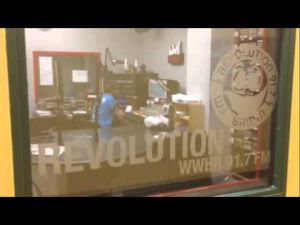KBA WKU Radio Talent Institute prepares for its first year on campus

July 16, 2013
The Kentucky Broadcasters Association is partnering with the Kellar Radio Talent Institute to bring its talent workshop to WKU for the first time.
July 22-31, 18 juniors and seniors from WKU’s School of Journalism and Broadcasting will learn the business of radio and sales from nearly 30 professionals in the business.
Dan Vallie, the founder of the talent institution, launched the National Radio Talent System this summer on college campuses to bring institutions to universities as starting points for finding college talent in the radio industry.
The first institute originated at Appalachian State University, and WKU becomes the second college to feature the institute.
Vallie said in a statement on the KBA’s website that, “The people at the KBA and the other broadcasters sponsoring the institute, and the leadership at WKU, grasp the vision and see this as the investment in our industry’s future that it is.”
Dick Taylor, assistant professor of broadcasting, said that students will learn from the best radio and television talent professionals in news and sports from all over the south.
“Friday, July 26, we will have the Lambert & Lindsey Morning Show airing live from our studio,” Taylor said. “We will be all over Louisville morning radio as the show airs live from Mass Media. We’re also going to LP Field in Nashville to meet with the Titans Radio Network and then to the Bridgestone Arena to work with the Nashville Predators radio team.”
The institute says that seven out of ten students that have completed the 10 day course have earned a job in radio or a related field to start their career.
Junior Ryan Metzger from Glasgow has worked in radio outside of WKU for a few years. He said the Radio Talent Institute will offer a new look into his future career in the business.
“I’m really looking forward to learning how the business really is,” Metzger said. “Companies, conglomerates, and even small independent radio stations want radio talent institutes to show the job requirements that are necessary in the radio field. It’s a great way for networking possibilities.”
With the Radio Talent Institute coming as a new idea to WKU, it took longer than anticipated for student interest to really pick up.
Taylor said that the participation will pick up as the institute becomes more familiar at WKU in the next few years.
“I’ve seen here at the university that students need as well as teachers need to be able to know what’s coming up to make plans,” Taylor said. “I think it just came under the radar a little too quickly, and that’s what made it difficult.”



















![Students cheer for Senator at Large Jaden Marshall after being announced as the Intercultural Student Engagement Center Senator for the 24th Senate on Wednesday, April 17 in the Senate Chamber in DSU. Ive done everything in my power, Ive said it 100 times, to be for the students, Marshall said. So, not only to win, but to hear that reaction for me by the other students is just something that shows people actually care about me [and] really support me.](https://wkuherald.com/wp-content/uploads/2024/04/jadenmarshall-600x422.jpg)



